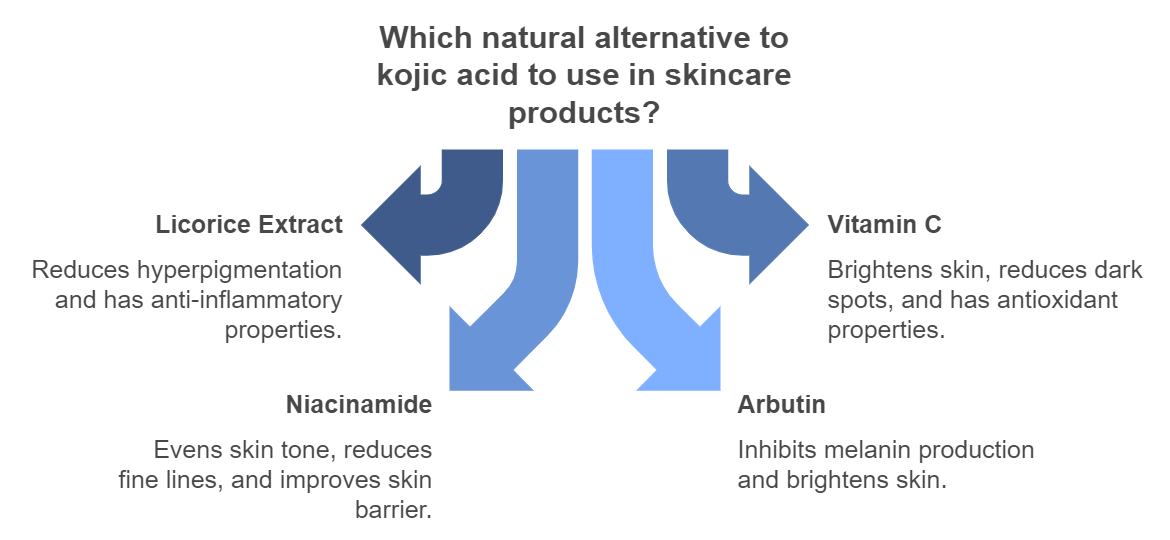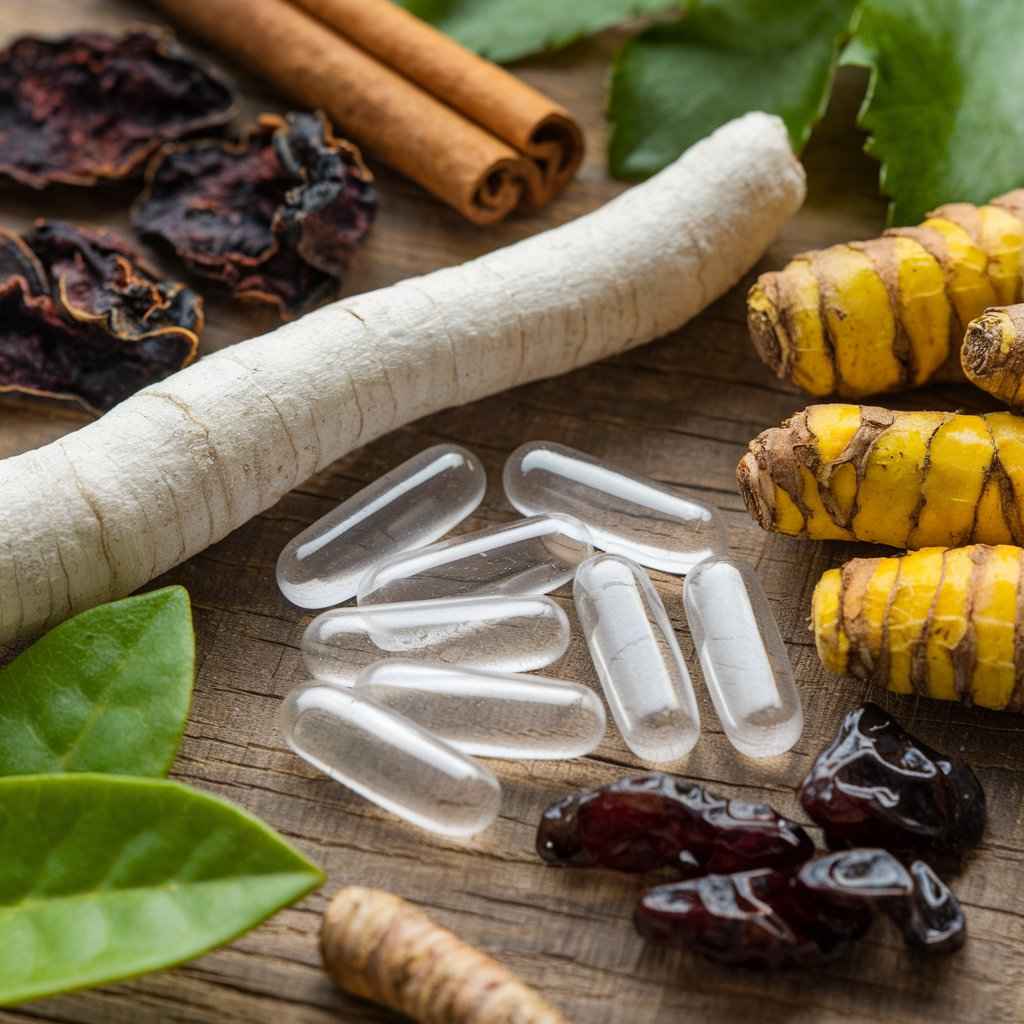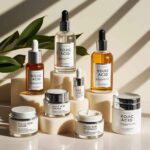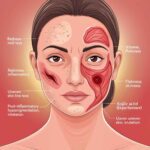Skin lightening is often sought to reduce hyperpigmentation, sun damage, acne scars, and melasma. Kojic acid is a common ingredient for lightening the skin, but there are other alternatives. Thankfully, nature offers various skin-brightening ingredients that work effectively without causing irritation. In this article, we’ll explore five natural alternatives to kojic acid for skin lightening.

Licorice Extract
Licorice extract comes from the roots of the licorice plant (Glycyrrhiza glabra) and contains several active compounds, including glabridin. Glabridin is known to inhibit tyrosinase, an enzyme that plays a key role in melanin production. This means it can help lighten skin without the harsh side effects.
Another important compound in licorice extract is liquiritin. The ingredient helps disperse melanin, making it particularly effective for treating hyperpigmentation.
Skin Lightening: How Long Does Kojic Acid Take to Work?
Scientific Support
A study aimed to assess the skin lightening effect of licorice extract cream in concentrations of 10%, 20%, and 40% on women aged 30-50 years. Participants applied the creams twice daily for four weeks on their upper and lower arms. After four weeks, all three concentrations of licorice cream showed improvements in skin brightness by decreasing spot pigmentation.
The study concluded that licorice extract is effective as a skin lightening agent. The natural ingredient also has minimal side effects compared to other chemical agents used for similar purposes.
Benefits
-
Anti-inflammatory properties: Reduces redness and soothes irritated skin.
-
Reduces pigmentation: Inhibits melanin production and disperses existing pigment.
-
Antioxidant protection: Guards against environmental stressors like pollution and UV rays.
-
Suitable for sensitive skin: Gentle enough for people who can’t tolerate stronger lighteners.
How to Use Licorice Extract
Licorice extract is commonly found in serums, creams, and gels. When using it in your routine, look for products containing 1-2% licorice extract for optimal skin-lightening effects. you may also combine locorice extract with other brightening ingredients like vitamin C for better results.
Comparing Top 5 Kojic Acid Products for Glowing, Even Skin
2. Vitamin C
Vitamin C, also known as ascorbic acid, is a potent antioxidant that aids collagen production and improves skin health. Its skin-brightening effects come from its ability to neutralize free radicals that damage skin cells and its inhibitory effect on tyrosinase. This dual action helps reduce the appearance of dark spots and prevent new ones from forming.
Vitamin C also promotes collagen production, which helps improve skin texture and elasticity. The added bonus is that it can lighten skin while providing protection against UV damage when used in the daytime with sunscreen.
Kojic Acid vs. Vitamin C: A Comprehensive Guide to Skin Brightening
Scientific Support
A review concluded that vitamin C can reduce pigmentation by inhibiting the enzyme tyrosinase, which contributes to melanin synthesis. The findings, drawn from a range of studies, including randomized controlled trials, confirm its effectiveness in treating both skin and gingival (gum) hyperpigmentation. However, the review also highlights the need for more rigorous studies to solidify these benefits.
Another review on how vitamin C helps with melasma and photoaging pulled data from seven studies involving 139 participants. The review concluded that vitamin C doesn’t just lighten pigmentation but also improves skin texture and boosts hydration. Like many other organic skincare ingredients, you’ll need long-term use to see its full potential in action.
Benefits
-
Powerful antioxidant: Protects the skin from free radicals and environmental damage.
-
Reduces dark spots: Lightens hyperpigmentation and prevents new spots from forming.
-
Boosts collagen: Improves skin elasticity and reduces the appearance of fine lines.
-
Combats photoaging: Helps protect against sun-induced skin damage.
How to Use Vitamin C
Opt for serums with a concentration between 10-20%, as this range has been shown to deliver effective results. Apply it in the morning under sunscreen for maximum protection against UV rays and environmental pollutants.
3. Niacinamide
Niacinamide, also known as vitamin B3, is a water-soluble vitamin that works as a skin-brightener. It inhibits the transfer of melanin to the skin’s surface, which helps reduce pigmentation and dark spots. Niacinamide also improves skin barrier function, boosts hydration, and reduces inflammation.
Scientific Support
A study conducted on Japanese women assessed the effects of 5% niacinamide in reducing facial hyperpigmentation. After four weeks, participants using a niacinamide-based moisturizer saw a decrease in dark spots and an increase in overall skin brightness.
Benefits
-
Hydration booster: Improves the skin’s ability to retain moisture.
-
Reduces pigmentation: Inhibits melanin transfer, resulting in fewer dark spots.
-
Strengthens skin barrier: Enhances the protective function of the skin.
-
Anti-inflammatory: Reduces redness and irritation.
-
Improves texture: Helps smooth out rough or uneven skin.
How to Use Niacinamide
Niacinamide is versatile and can be used by all skin types. It works well in concentrations between 2-5%, but some products contain up to 10% for enhanced results. You can use niacinamide in the morning or evening and pair it with other active ingredients like vitamin C and retinol.
4. Arbutin
Arbutin is a naturally occurring compound found in the bearberry plant. Like kojic acid, arbutin works by inhibiting tyrosinase, the enzyme responsible for melanin production. The key difference is that arbutin is much gentler, making it ideal for people with sensitive or reactive skin.
Arbutin exists in two forms: alpha-arbutin and beta-arbutin, with alpha-arbutin being the more stable and effective of the two. It breaks down into hydroquinone—a well-known skin lightener—slowly, which allows for a gradual, less irritating brightening effect.
Scientific Support
A review article on arbutin’s skin-depigmenting properties shows that it can reduce melanin content without damaging skin cells. This is a key advantage, as many skin lightening agents can harm skin cells or cause irritation.
A literature review on alpha arbutin also emphasizes its potential as a safer alternative to hydroquinone. Alpha arbutin offers a much gentler route to a brighter complexion, while still delivering impressive results.
In one study, researchers found that treatment with arbutin reduced melanin production to just 40% of control levels. this reduction did not affect the viability of skin cells, underscoring alpha arbutin’s safety profile.
While arbutin is highly effective on its own, combining it with other treatments can enhance its skin lightening benefits.
Though arbutin is slower to produce results than kojic acid or hydroquinone, its gentle action makes it a better option for long-term use.
Benefits
-
Gentle on sensitive skin: Ideal for people who can’t tolerate harsher lightening agents.
-
Non-irritating: Reduces pigmentation without causing redness or dryness.
-
Safe for long-term use: Can be used daily without risk of rebound hyperpigmentation.
-
Improves skin texture: Helps to smooth and even out skin tone.
How to Use Arbutin
For best results, use products containing 2-4% arbutin. You can pair arbutin with other skin-lightening ingredients like niacinamide or vitamin C for enhanced results.
5. Mulberry Extract
Derived from the Morus alba plant, mulberry extract inhibits melanin production, making it effective for dark spots, melasma, and uneven skin tone. Let’s take a closer look at the scientific research behind mulberry extract’s skin-brightening abilities.
Scientific Support
A comparative study published on PubMed explored the use of 75% mulberry extract oil for treating melasma. In the trial involving 50 patients, those treated with mulberry extract saw a reduction in melasma severity. Over eight weeks, the Melasma Area and Severity Index score dropped from 4.076 to 2.884, indicating a clear improvement.
A patent also describes a whitening cosmetic formulation that includes mulberry leaf extract alongside arbutin and peony root bark extract. The combination is said to effectively inhibit tyrosinase activity, which is crucial in melanin production, thus promoting skin lightening. The formulation is noted for being natural and suitable for all age groups without toxic effects.
Benefits
-
Reduces pigmentation: Inhibits melanin production for a more even skin tone.
-
Antioxidant protection: Helps protect against UV-induced skin damage.
-
Non-irritating: Gentle on sensitive skin and suitable for daily use.
-
Enhances skin texture: Helps smooth out rough patches and improve overall complexion.
How to Use Mulberry Extract
Mulberry extract is often included in serums, creams, and masks. It works well when used alongside other skin-brightening ingredients like arbutin or licorice extract. For best results, use a product containing mulberry extract in your daily skincare routine.
Understanding Melanin Production
Melanin is the natural pigment responsible for the color of your skin, hair, and eyes. While melanin helps protect the skin from UV damage, overproduction can lead to hyperpigmentation. Common triggers include sun exposure, hormonal changes, inflammation, and aging.
Conclusion
Natural alternatives to kojic acid offer effective solutions for those seeking a gentler approach. These ingredients work to reduce hyperpigmentation, brighten the skin, and improve overall complexion. Remember, consistency is key when using natural skin-lightening products, and results may take time. Always perform a patch test before trying new products, and consult with a dermatologist if you have any specific skin concerns.
Sources:
https://www.mdpub.net/fulltext/172-1541805279.pdf
https://www.ncbi.nlm.nih.gov/pmc/articles/PMC7802860/
https://pubmed.ncbi.nlm.nih.gov/12100180/
https://www.ncbi.nlm.nih.gov/pmc/articles/PMC8301119/
https://www.researchgate.net/publication/350621514_Alpha_Arbutin_as_a_Skin_Lightening_Agent_A_Review
https://www.jstage.jst.go.jp/article/bpb/27/4/27_4_510/_article/-char/ja/
https://pubmed.ncbi.nlm.nih.gov/22052272/
https://patents.google.com/patent/CN105496884A/en

I’m a devoted organic skincare enthusiast, passionate about the natural, wholesome goodness that organic products bring to our skin.
Organic skincare isn’t just a hobby for me—it’s a lifestyle. Every product I use, recommend, and write about has been carefully chosen for its purity and effectiveness. Everything I write about is backed by scientific studies, dermatologists’ opinions, and user experiences.
I also excel at tackling skincare challenges with innovative, organic solutions.


